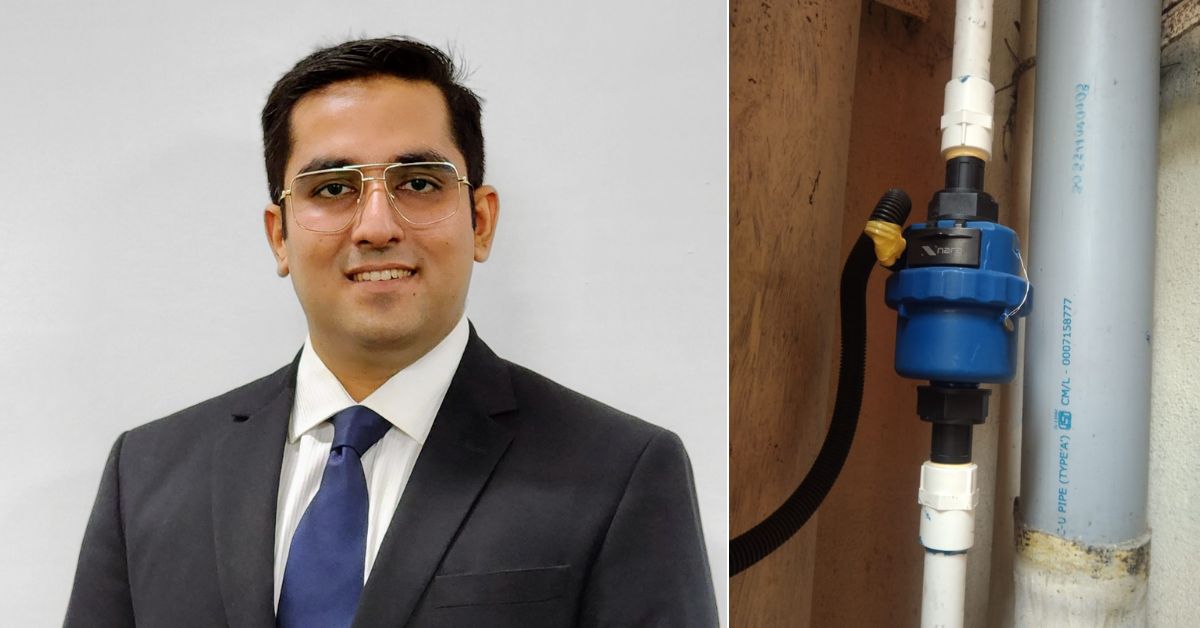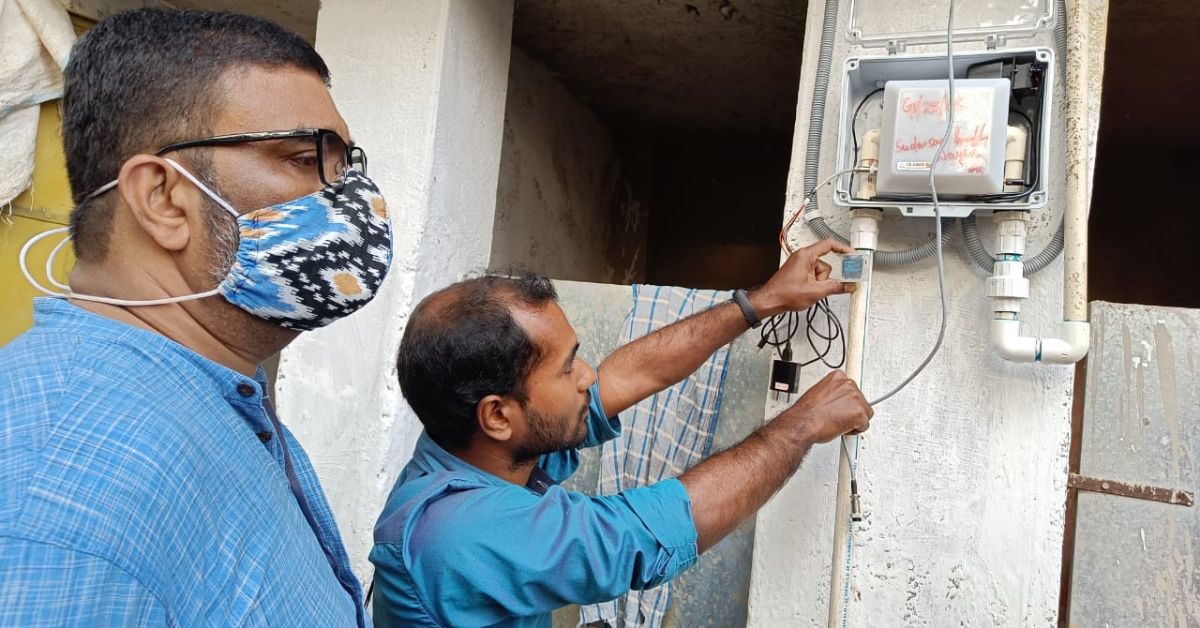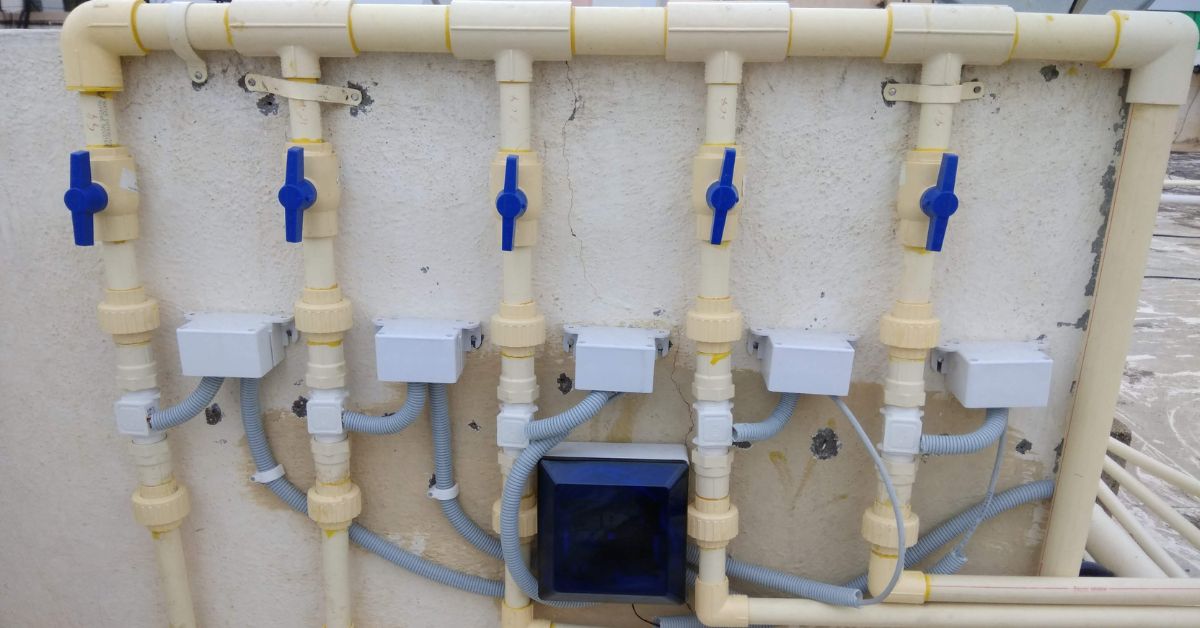Bengaluru Man’s AI-Enabled Smart Devices Help Households Cut Water Bills by Half
You wake up and head to the kitchen, half-asleep, reaching for the tap to rinse your cup — but nothing comes out. You try the bathroom. Still nothing. The tank didn’t fill last night, and the tanker you called? No sign of it. You step out into the corridor, and someone’s already asking, “Did the water come?”
If you live in Bengaluru, you’ve probably had a morning like this. Not just once, but too many times.
Dr Rohit Nara knows the feeling. Having grown up in Bengaluru, he believes the city’s water crisis stems more from mismanagement than an actual lack of water.
Last summer, Bengaluru faced a significant water crisis, driven by a weak monsoon, excessive groundwater extraction, and rapid urban expansion. Many communities in the city rely heavily on water tankers for their daily needs. This reliance considerably raises costs, as tanker water is much more expensive than other sources.
“A major part of the water loss in Bengaluru arises from undetected leaks in infrastructure, such as underground pipelines and storage facilities. Over time, these small, often unnoticed cracks lead to substantial water loss,” he shares.
He recalls an instance from his building, where nearly a full day’s supply of water was lost due to underground leaks. “Most residents don’t use water level controllers. So, motors are always left running, leading to overflow. This adds to non-revenue water — water that’s produced but not billed, either due to leaks or theft,” he says.
 Dr Rohit’s technology also addresses the issue of water wastage by introducing fairer billing methods.
Dr Rohit’s technology also addresses the issue of water wastage by introducing fairer billing methods.
Dr Rohit also notes that borewells, when not managed efficiently, produce significantly less water. “Our manually managed borewell initially produced only about 400-500 litres of water a day, which was inadequate for the seven or eight families in our building. After implementing an automation system, the borewell’s output increased to 1,200-1,800 litres daily. This cut down our dependency on costly water tankers,” he explains.
This personal experience got Dr Rohit thinking about how scalable innovations can be developed to help his building, as well as many other households in Bengaluru grappling with similar water issues.
From college dropout to water tech entrepreneur
In 2015, Dr Rohit dropped out of the Institute of Technology, Bengaluru, and founded Nara Technologies. As the city’s growing population strained its water infrastructure, Dr Rohit saw an opportunity to create a solution.
With a firm foothold in electronics and communication, he launched ‘Agua’ in 2016 under the parent company, Nara Technologies. The startup focused on developing smart solutions for water management.
At the heart of Agua’s innovation are AI-enabled smart devices designed to track, manage, and optimise water usage, built to drastically cut bills and conserve the valuable resource.
Explaining how the system works, he says, “We install our smart water metres on the water inlets of apartments. These metres have flow sensors that measure how much water is being used in real time. The data is then sent wirelessly to the cloud, and residents can view their daily usage on a mobile app.”
 Smart systems help ensure that no drop is wasted.
Smart systems help ensure that no drop is wasted.
He adds, “This real-time information helps people understand and manage their water use better. The system also detects leaks, not just in homes, but even in underground storage tanks. In some buildings, we’ve seen that up to 10 percent of water was being lost due to such hidden leaks. Our devices help prevent that.”
Dr Rohit’s technology also addresses the issue of water wastage by introducing fairer billing methods. One of his key innovations is a dynamic billing system that calculates charges based on both the source of water (such as borewell or tanker) and its availability at any given time.
This approach encourages the use of more affordable and sustainable sources like borewell water, helping reduce reliance on expensive tanker supplies. By tracking both the origin and volume of water used, the system offers transparent and accurate billing.
“This ensures that residents pay for exactly what they consume,” Dr Rohit explains. “It promotes efficient use by making people more aware of their usage patterns, and ensures fair billing based on actual consumption and water source.”
One of the key elements of this setup is the seamless integration of a mobile app that sends residents real-time notifications about their water usage. The app, Dr Rohit says, provides detailed insights into consumption trends, helping users track their habits and encouraging a culture of conservation.
“By employing these intelligent devices, residents are more likely to alter their behaviour to prevent unnecessary water use. The ability to pinpoint leaks and inefficient use within households or larger complexes means potential issues can be resolved before they escalate,” Dr Rohit shares.
 The AI-enabled smart metres and dynamic billing cut water bills by 55 percent.
The AI-enabled smart metres and dynamic billing cut water bills by 55 percent.
Reducing water bills to half
Dr Rohit’s smart water systems have made it easier for people to manage their water use without the hassle. By automating the process, he has helped families waste less water and save a lot more on their monthly bills. Today’s Agua’s smart water metres are installed in over 450 flats across Bengaluru. The results have been encouraging. Apartment complexes using the system have reduced their overall water consumption by 35 percent and monthly water bills by more than 55 percent.
Ranjan Prakash, who lives in Manjunath Residency, Bengaluru, remembers how things were back in 2016. There were constant arguments about water being wasted and society maintenance charges going up — mostly because tanker water had become so expensive. It affected everyone in the community, whether they were families or bachelors.
To tackle this issue, the society installed Agua’s smart water metres for household-level monitoring. “By installing the smart meters, our water use became sustainable and we even saw a reduction in our family’s water bills. For a monthly rental of Rs 100, the metres gave us real-time usage tracking, water level notifications, and alerts for significant consumption changes, along with transparent billing,” he shares.
“As a result, within three months, the community reduced water consumption by 30 percent and cut costs by over 45 percent. We became less dependent on expensive tanker deliveries and used borewell sources more efficiently. The initial investment in 2016 was Rs 17,000, which covered repair work and the installation of shared inlets. By consolidating multiple inlets into one per household, the installation cost was brought down to around Rs 3,000. The community broke even in under a year and a half, and all of us were satisfied with the decision,” he adds.
 Dr Rohit, with his team, strives to work on developing smart solutions for water management in the city.
Dr Rohit, with his team, strives to work on developing smart solutions for water management in the city.
A vision for smarter cities
Dr Rohit envisions a future where every city is equipped to manage its water wisely — where smart systems help ensure that no drop is wasted. “Water shortage affects everyone. It’s frustrating to wake up in the morning, ready to start your day, and find there’s no water,” he says. “During Bengaluru’s crisis, even finding a tanker became impossible, and prices shot up. People were left with very few options, all while huge amounts of water continued to be lost due to poor infrastructure.”
Reflecting on how his technology addresses this gap, he says, “Seeing the impact is rewarding — but for us, this is not just about results. It’s an ongoing mission. There’s always a bigger challenge ahead. The moment we solve one, we move on to the next.”
Edited by Khushi Arora; All images courtesy Dr Rohit Nara
News